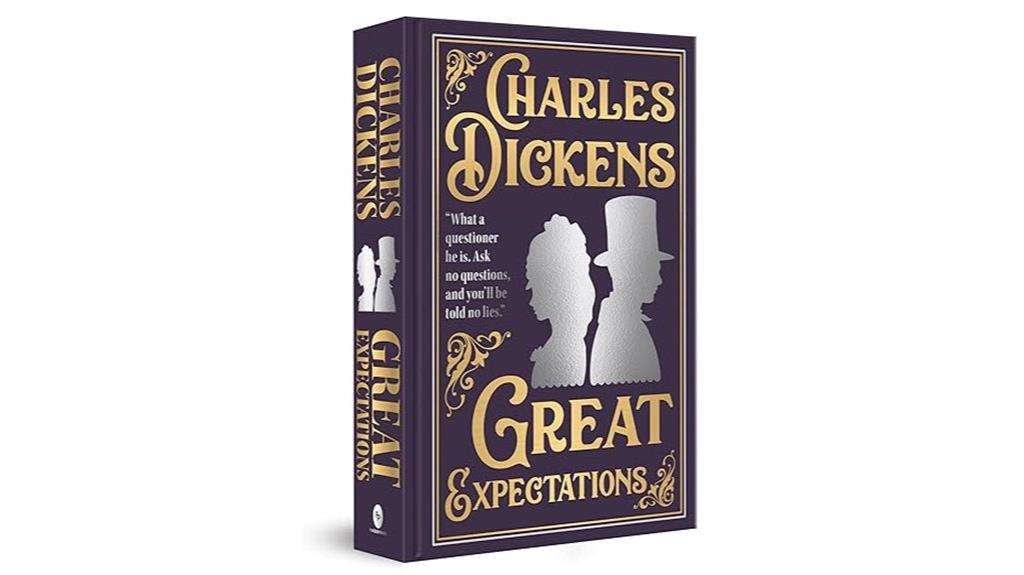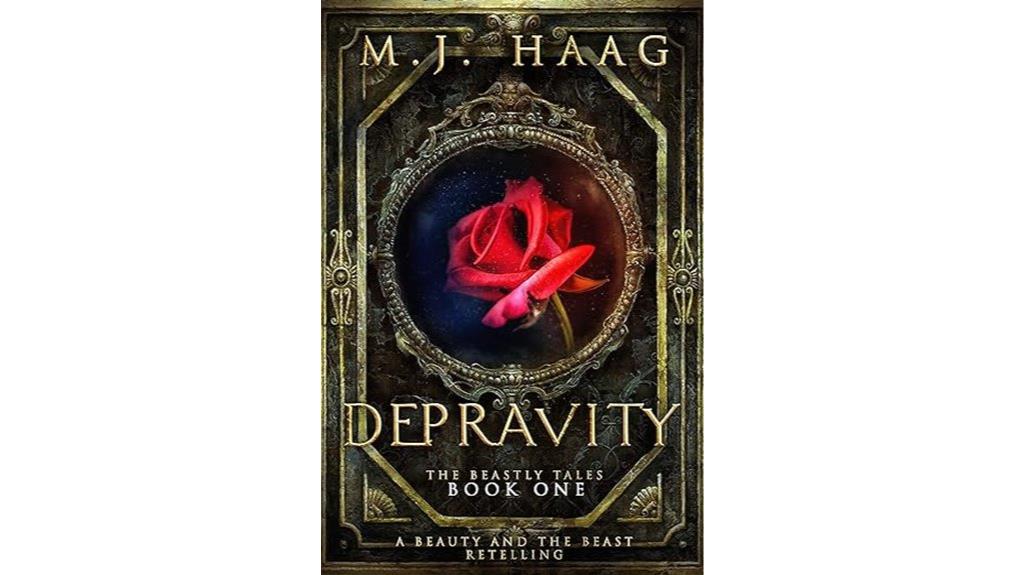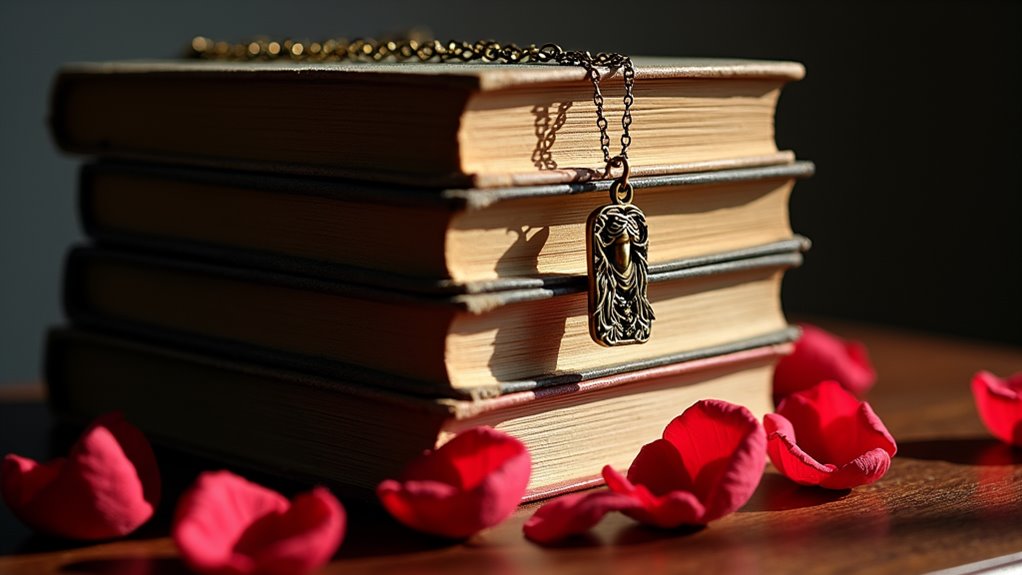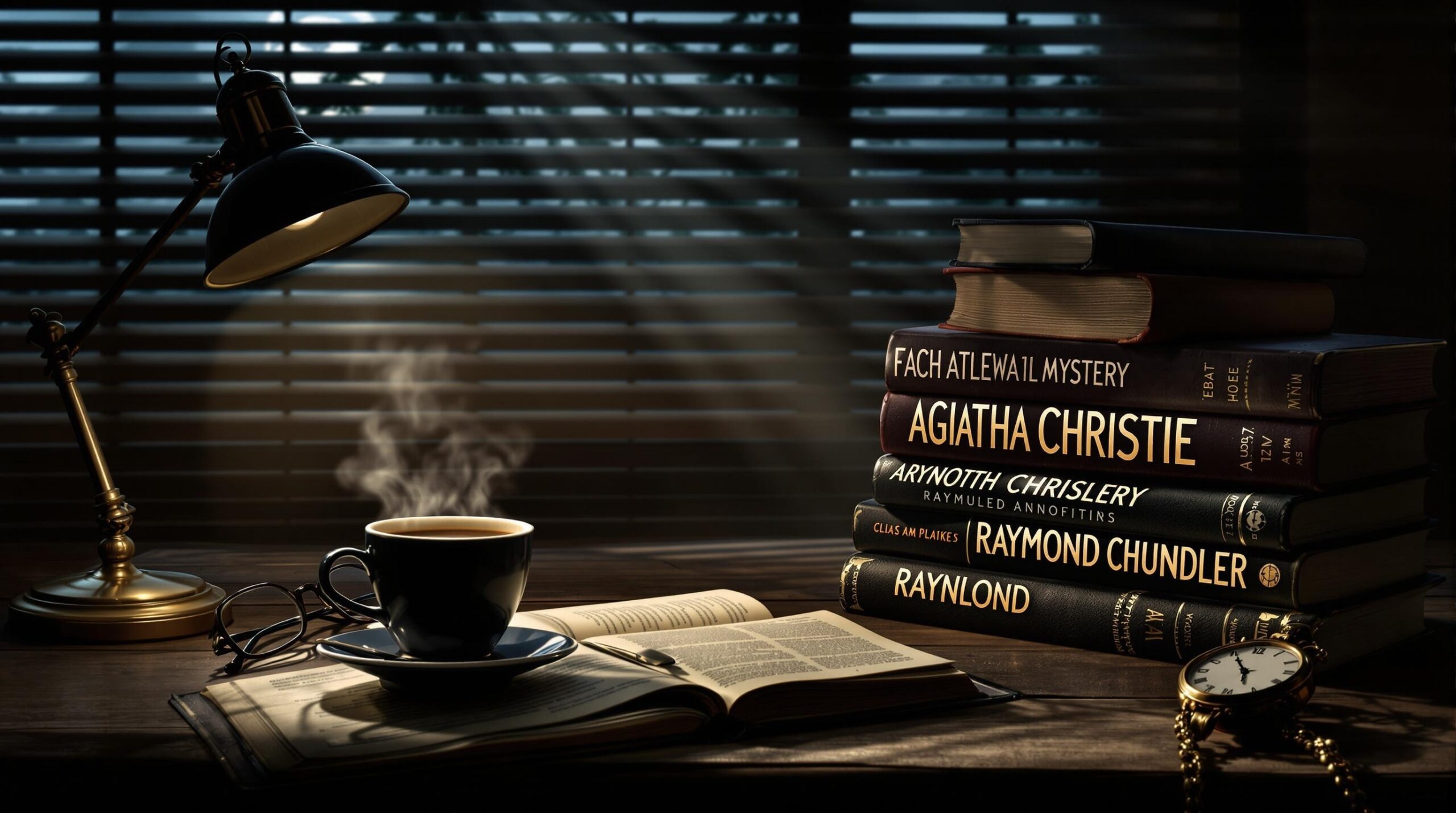Table of Contents Show
There may be products. Products are independently selected by our editors. We may earn an affiliate commission from the links with no charge to you, example: as Amazon Affiliate.
Disclaimer: We may earn an affiliate commission from the links with no charge to you.
We’re excited about two feminist retellings arriving in January 2025. First, there’s a luxurious hardbound edition of “Great Expectations” featuring gold-lined pages and vivid descriptions, though some readers note issues with page sticking. Second, “Depravity” offers a fresh take on Beauty and the Beast, following Benella’s compelling journey balancing family duties with a complex Beast relationship. While both books have minor drawbacks, their unique perspectives on classic tales deserve a closer look.
Key Takeaways
- “Great Expectations” deluxe hardbound edition offers a feminist perspective with elegant gold-lined pages and vivid storytelling.
- “Depravity” reimagines Beauty and the Beast through Benella’s journey, emphasizing family dynamics and female resilience.
- Both releases challenge traditional gender roles while maintaining core elements of their original classic stories.
- Critics praise the complex character development and emotional authenticity in both upcoming feminist retellings.
- These January 2025 releases balance entertainment value with meaningful commentary on contemporary women’s issues.
Great Expectations (Deluxe Hardbound Edition)

While this deluxe hardbound edition of Great Expectations boasts gold-lined pages and an attractive presentation, serious collectors should be aware of mixed quality reviews, particularly regarding pages that stick together from gilding issues.
Despite these concerns, we’ve found Dickens’ eloquent writing style shines through, with vivid descriptions that transport readers back in time. The hardbound format offers better durability than paperbacks, though some buyers report disappointment with the cover’s lighter weight and potential for damage. While it’s been well-received as a gift item, we recommend carefully weighing the aesthetic appeal against the construction quality before investing in this particular edition.
Best For: Literature enthusiasts and gift-givers seeking an aesthetically pleasing edition of Dickens’ classic, who prioritize decorative appeal over construction quality.
Pros:
- Attractive presentation with gold-lined pages makes an elegant display piece
- Hardbound format offers better durability than paperback editions
- Classic story with rich content worthy of multiple readings
Cons:
- Pages may stick together due to gilding issues
- Cover quality lighter and more prone to damage than expected
- Quality control inconsistencies across different copies
Depravity: A Beauty and the Beast Retelling (A Beastly Tale Book 1)

Fans of complex female protagonists will find themselves drawn to Melissa Haag’s “Depravity,” a contemporary reimagining of Beauty and the Beast that places resilience at its core.
We’re particularly taken with Benella, who shoulders family responsibilities while maneuvering a complicated relationship with the Beast. Her character arc shines against the foil of her antagonistic sisters, Bryn and Blye, offering a fresh perspective on familial dynamics.
While the romance unfolds gradually and the ending leaves us wanting more, Haag’s compelling blend of humor and emotional depth keeps us invested. Her masterful characterization of the Beast’s evolution from gruff protector to sympathetic figure adds layers to this feminist interpretation.
Best For: Readers who enjoy character-driven contemporary retellings of fairy tales with strong female protagonists and slow-burn romance elements.
Pros:
- Complex, well-developed female protagonist who demonstrates both strength and vulnerability
- Fresh take on the classic Beauty and the Beast story with compelling family dynamics
- Skillful blend of humor and emotional depth throughout the narrative
Cons:
- Abrupt ending that requires reading the sequel for resolution
- Slow pacing, particularly in the relationship development
- Some plot elements and adult themes are introduced but not fully explored in the first book
Factors to Consider When Choosing 4 Feminist Retelling Books Publishing in January 2025
When we’re looking for powerful feminist retellings to start our 2025 reading year, we’ll want to evaluate key elements like complex female character arcs and how faithfully the historical setting matches both the original tale and women’s actual experiences of that era. We’ll examine the author’s narrative style and how it breathes fresh perspective into the source material, while considering whether the intended audience and themes align with our reading preferences. Beyond these factors, we need to assess how successfully each book challenges traditional gender roles while maintaining the core magic that made us fall in love with the original stories.
Strong Female Character Development
As feminist retellings continue to reshape classic narratives, strong female character development remains an essential factor in selecting which books to anticipate in January 2025. We’re looking for protagonists who demonstrate resilience while challenging societal norms, growing through their struggles rather than being defined by them.
We’ll prioritize stories that showcase multidimensional heroines whose emotional complexity drives their narrative arcs. These characters should navigate their coming-of-age journeys with both vulnerability and strength, making choices that assert their autonomy in male-dominated settings. We’re especially drawn to retellings that emphasize the power of sisterhood and friendship, where supportive relationships enable characters to overcome adversity. These elements create relatable protagonists whose transformations resonate with modern readers while honoring the spirit of the original tales.
Historical Context and Accuracy
Beyond compelling character development, the historical backdrop of feminist retellings shapes our selection criteria for January 2025’s most promising titles. We’re looking for authors who’ve done their research, weaving accurate period details into their narratives while illuminating the complexities women faced in their respective eras.
When evaluating these upcoming retellings, we examine how effectively they portray historical events, cultural practices, and period-specific language. The best feminist retellings don’t just reimagine stories – they ground them in authentic historical contexts that highlight both progress and persistent challenges in gender equality. We prioritize works that connect past struggles to contemporary issues, making these retellings resonate with modern readers while maintaining historical integrity. This balance of accuracy and relevance is vital for our January selections.
Writing Style and Voice
The writing style and voice of feminist retellings serve as crucial factors in our selection process for January 2025’s most compelling titles. We’re looking for narratives that masterfully balance contemporary dialogue with emotional resonance, creating characters who speak to modern readers while honoring the essence of original tales.
In our selection, we prioritize works that employ innovative storytelling techniques, whether through multiple perspectives or nonlinear timelines. We’re drawn to authors who skillfully weave humor with depth, crafting protagonists whose strength and resilience shine through authentic voices. The most successful retellings we’ve identified don’t simply flip gender roles; they explore complex character motivations and relationships through fresh, engaging prose that challenges traditional narratives while maintaining the story’s core appeal.
Original Story Source Material
Selecting powerful source material forms the foundation of compelling feminist retellings. When we examine January 2025’s upcoming releases, we’re looking for stories that provide rich frameworks for feminist interpretation. We’re particularly excited about narratives drawing from diverse cultural mythologies and folklore, as they bring fresh perspectives to familiar themes.
A story’s potential for feminist reimagining often lies in its original character dynamics and power structures. We seek tales that can be meaningfully transformed, where previously passive heroines can evolve into active protagonists. The cultural context of source material matters too – understanding the historical perspective helps authors create more nuanced modern interpretations. Let’s prioritize stories that not only challenge traditional gender roles but also offer complex character relationships worth exploring through a contemporary feminist lens.
Target Audience and Appeal
Identifying the target audience and appeal of feminist retellings requires a nuanced understanding of what draws readers to these transformative works. We’re looking for stories that resonate with diverse audiences while maintaining emotional authenticity and depth.
When we evaluate January 2025’s upcoming feminist retellings, we’re considering how each book speaks to readers seeking both entertainment and meaningful commentary on gender roles. The best selections will offer complex character development that appeals to those who want to see themselves reflected in the narrative. We’re particularly drawn to works that challenge traditional storytelling through fresh perspectives, making classic tales relevant to contemporary readers. The writing style should be engaging enough to hook casual readers while offering sufficient depth for those seeking thoughtful feminist discourse.
Frequently Asked Questions
How Do Feminist Retellings Differ From Traditional Fairy Tale Adaptations?
We see feminist retellings challenge traditional power dynamics and gender roles found in classic fairy tales. Instead of passive princesses waiting to be rescued, we find complex female characters with agency and their own aspirations. They’re often told from women’s perspectives, highlighting themes of empowerment, sisterhood, and breaking patriarchal norms. We’re shown relationships based on equality rather than dominance, and heroines who save themselves rather than waiting for princes.
Are These Feminist Retellings Suitable for Young Adult Readers?
We’ll find that feminist retellings often tackle mature themes like gender roles, power dynamics, and sexuality that may not suit all young adult readers. While some are specifically written for the YA audience with age-appropriate content, others contain complex narratives and adult situations. It’s best to check individual book reviews and content warnings before recommending these stories to teens.
Who Are the Leading Authors in Feminist Retelling Literature?
When we think of feminist retellings, we can’t overlook Margaret Atwood, whose powerful adaptations of myths and fairy tales have shaped the genre. We’ve seen remarkable contributions from Madeline Miller with “Circe” and “Song of Achilles,” and Carmen Maria Machado’s bold reinterpretations. Pat Barker’s “The Silence of the Girls” and Naomi Novik’s fantasy retellings have also redefined how we see classic stories through a feminist lens.
What Role Do Male Characters Play in Feminist Retellings?
In feminist retellings, we often see male characters reimagined, reframed, and reconstructed to challenge traditional power structures. We watch as kings become vulnerable, warriors show emotional depth, and villains reveal complex motivations. Sometimes they’re pushed to supporting roles, letting women’s stories shine, while other times they’re transformed into allies who actively dismantle patriarchal systems. They serve as mirrors reflecting how masculinity can evolve beyond stereotypes.
Do These Retellings Maintain the Original Story’s Core Themes?
We often find that feminist retellings preserve core themes while adding new layers of meaning. Themes like love, sacrifice, and redemption typically remain intact, but they’re explored through a different lens. What changes is the perspective and power dynamics, not the fundamental story elements. We’re seeing familiar narratives enriched with deeper examinations of gender roles, agency, and social structures that weren’t addressed in original versions.
Conclusion
Like a phoenix rising from ashes of traditional tales, we’ve witnessed how these feminist retellings breathe new life into classic stories. We’re seeing familiar roses bloom with sharper thorns, as both “Great Expectations” and “Depravity” promise to shatter glass ceilings this January. Whether you’re drawn to Victorian England’s reinvention or Beauty’s darker journey, these stories offer fresh perspectives that’ll challenge and empower modern readers.









